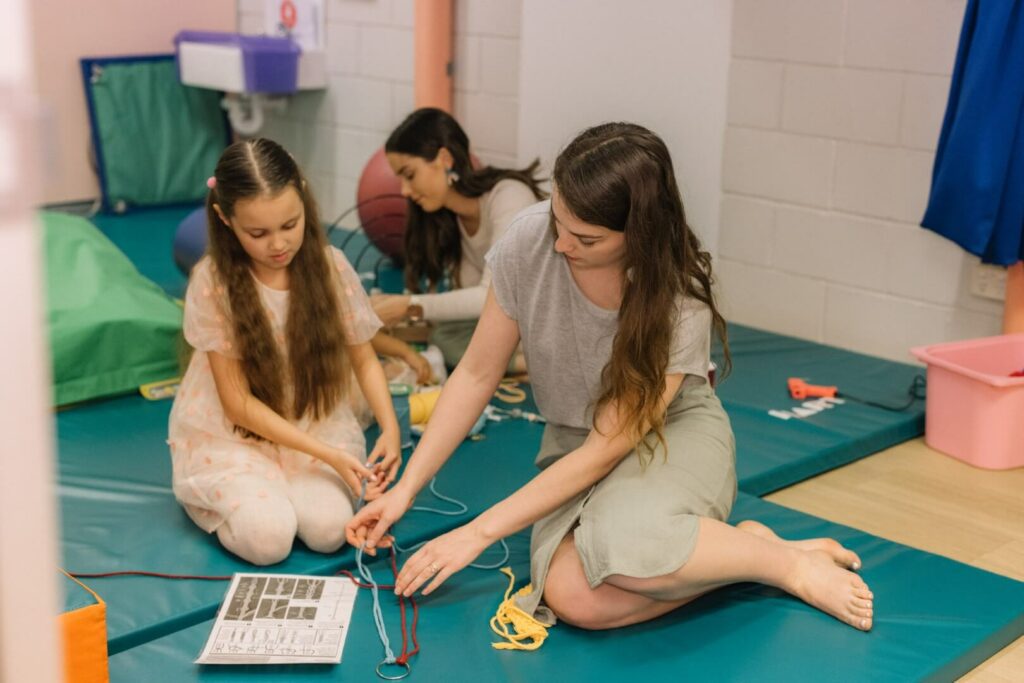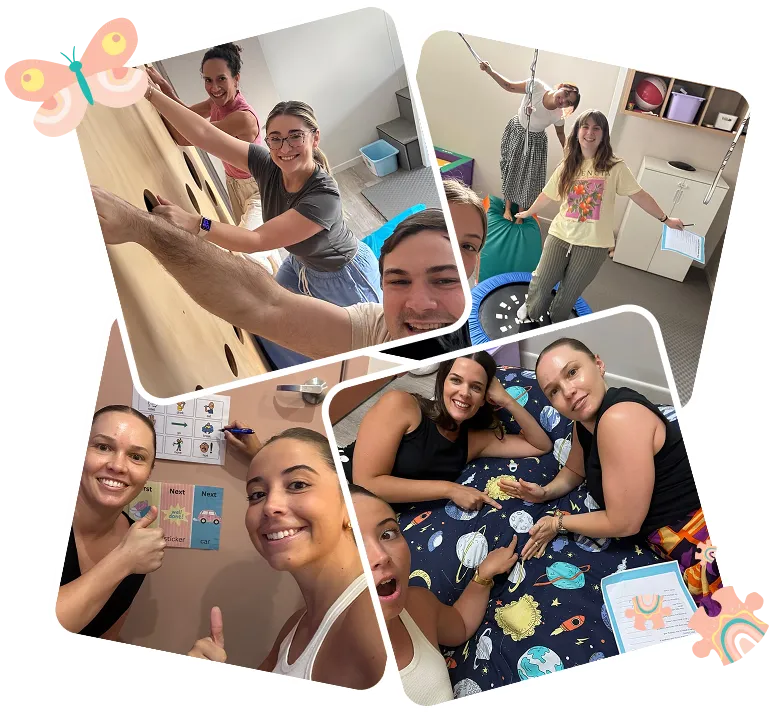
Sensory processing what is it? And why is it important?
Sensory processing is an everyday neurological process whereby we make sense of the world around us. It refers to eight different sensory inputs being touch, taste, smell, taste, sound, body awareness, movement and information about our internal state such as hunger, thirst, or the feeling of a full bladder as some examples.
⠀⠀⠀⠀⠀⠀⠀⠀⠀
Why do we have a sensory system in the first place? Interaction, connection and safety with others and the world around us.
It’s most primitive function is to tell us if there is a threat to our safety so we can activate fight, flight or freeze response. In more contemporary research a fourth response emerges being ‘fawn’ which is essentially people pleasing and going along with something that suits other’s but may not feel safe or genuine to us.
Our Sensory system does a lot of different jobs! All of these different jobs can be broken down into two main overarching jobs…⠀⠀⠀⠀⠀⠀⠀⠀⠀
Turning up or down the ‘volume’ on certain sensory information you are receiving from your environment, to make sure you don’t miss the important bits but also don’t focus too hard on the bits that are a low-level priority.
You’ve determined the important to the unimportant, now can you go to that next level and determine whether the sensation is the same or different, is it more, is it less. And from here what do I now do with this information?⠀⠀⠀⠀⠀⠀⠀
Sensory information comes in the following forms:
⠀⠀⠀⠀⠀⠀⠀
Visual processing – what you can see, includes visual monitoring, tracking, coordinating the eyes together, determining when things are the same or different and much more.⠀⠀⠀⠀⠀⠀⠀⠀⠀
⠀⠀⠀⠀⠀⠀⠀⠀⠀
Tactile processing – did you know skin is the largest organ in the body! We have receptors on the surface of our skin that detect touch input, along with temperature.⠀
Vestibular processing – our inner ears are amazing things! They tell us about whether we are moving or stationary, which way is up, down, left, right and help us understand three dimensional space. ⠀⠀
Our vestibular system is also responsible for making sure we have enough rigidity in our muscles to hold upright postures for interacting, concentrating and learning. ⠀⠀⠀⠀⠀⠀⠀
Proprioceptive processing – the Proprioceptive system is responsible for giving us information about where our body is in space, how much tension is in our muscles and joints and how much force we are using for a movement task.
Our vestibular and proprioceptive systems work so closely together it’s almost impossible to separate them. DID YOU KNOW… that every second we receive thousands of messages from these systems to help us process where we are in the world? Imagine if these senses weren’t sending you accurate or trustworthy information – how much would that impact your ability to feel safe in the world?
Olfactory or smell processing – Our sense of smell. Did you know that our smell receptors are closely linked with the memory centres of our brain!⠀⠀
⠀⠀⠀⠀⠀⠀⠀⠀⠀⠀⠀⠀⠀
Gustatory or taste processing – This one is an easy one to describe… food is life right! Our delightful little taste buds help with this one. ⠀
Auditory processing – It’s necessary for determining what sounds are important and which ones aren’t. This helps us with doing vital things like following instructions, responding in a conversation and listening to a favourite song. Did you know that the inner ear has a membrane which functions much like the pupil constricting and dilating based on the sound it can hear? This is why you can tune in on a conversation in a loud café for example.
Interoceptive processing – This is a BIG one, it is so often missed or forgotten about! This is all about your internal body state, are you hungry (or HANGRY), thirsty, do you need to go to the bathroom, do you have pain? All of these things which help keep our body balanced and functioning at its optimal level.
This is why it can be so helpful to work with an OT, we understand all of the above senses. We can support you to process sensory information as optimally as possible for your unique profile and sensitivities. From there we can also give you tools and techniques to manage each day.
If your child has sensory processing differences, then an OT may be vital in supporting them to live life to its fullest!
